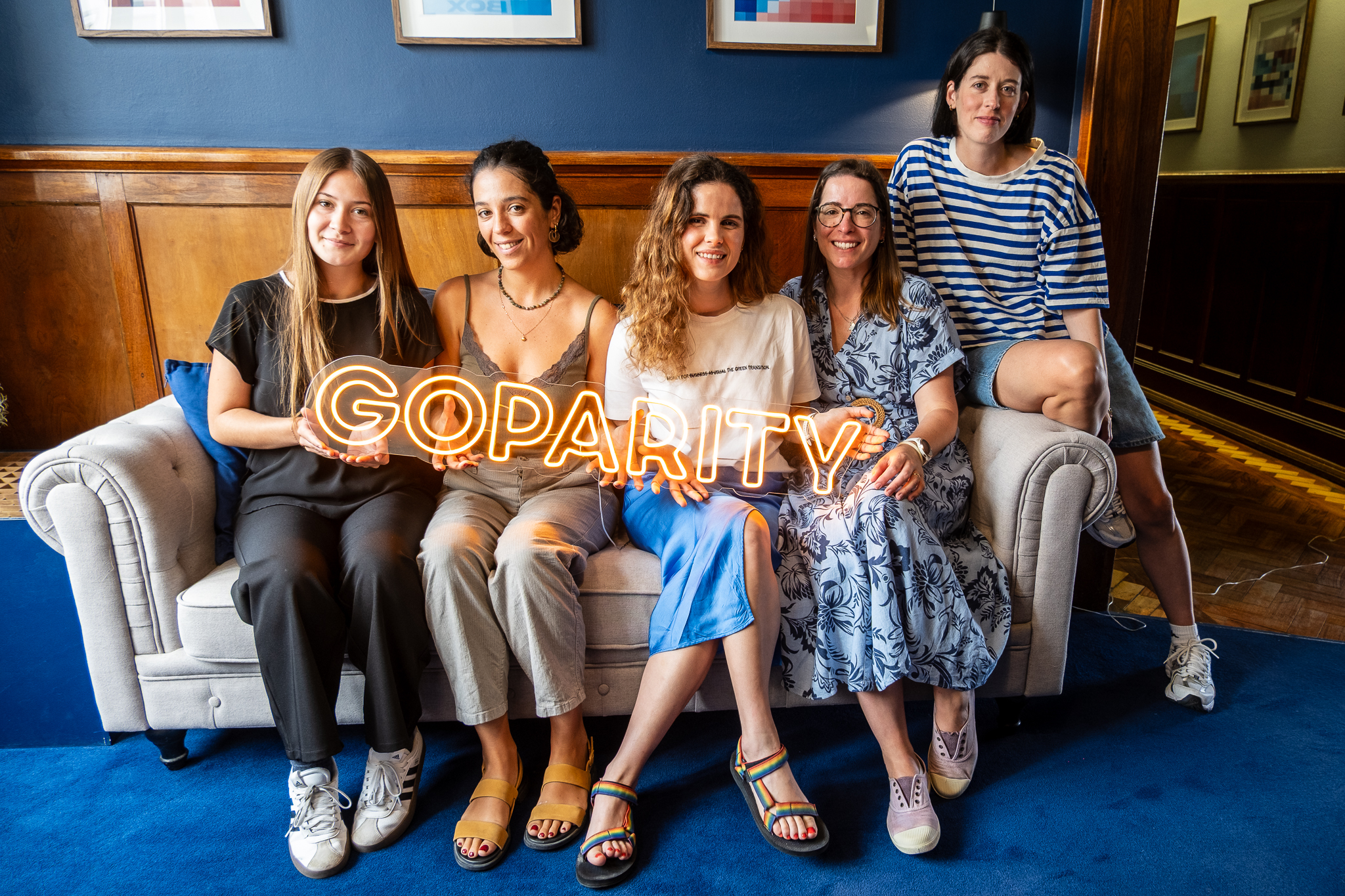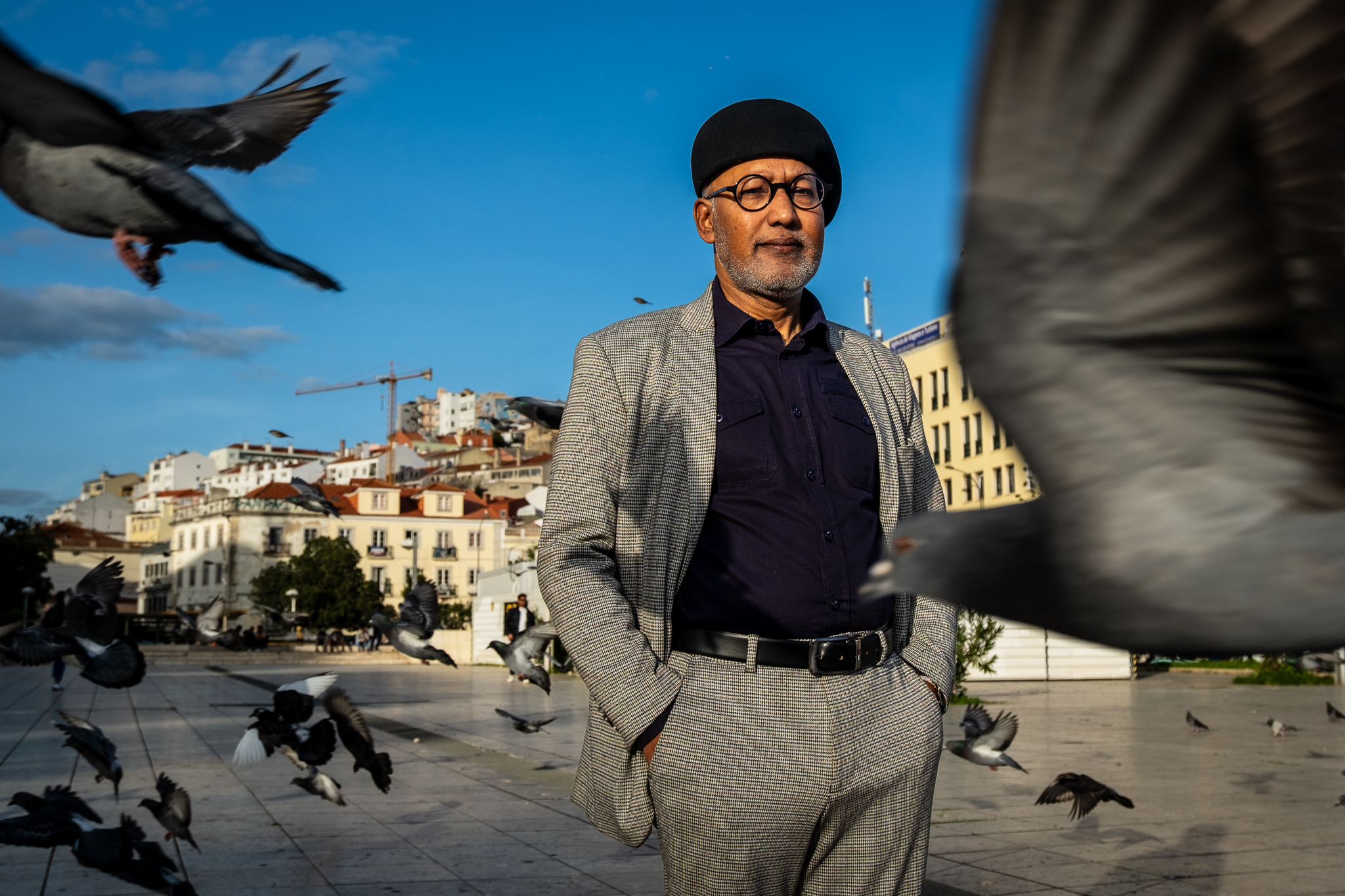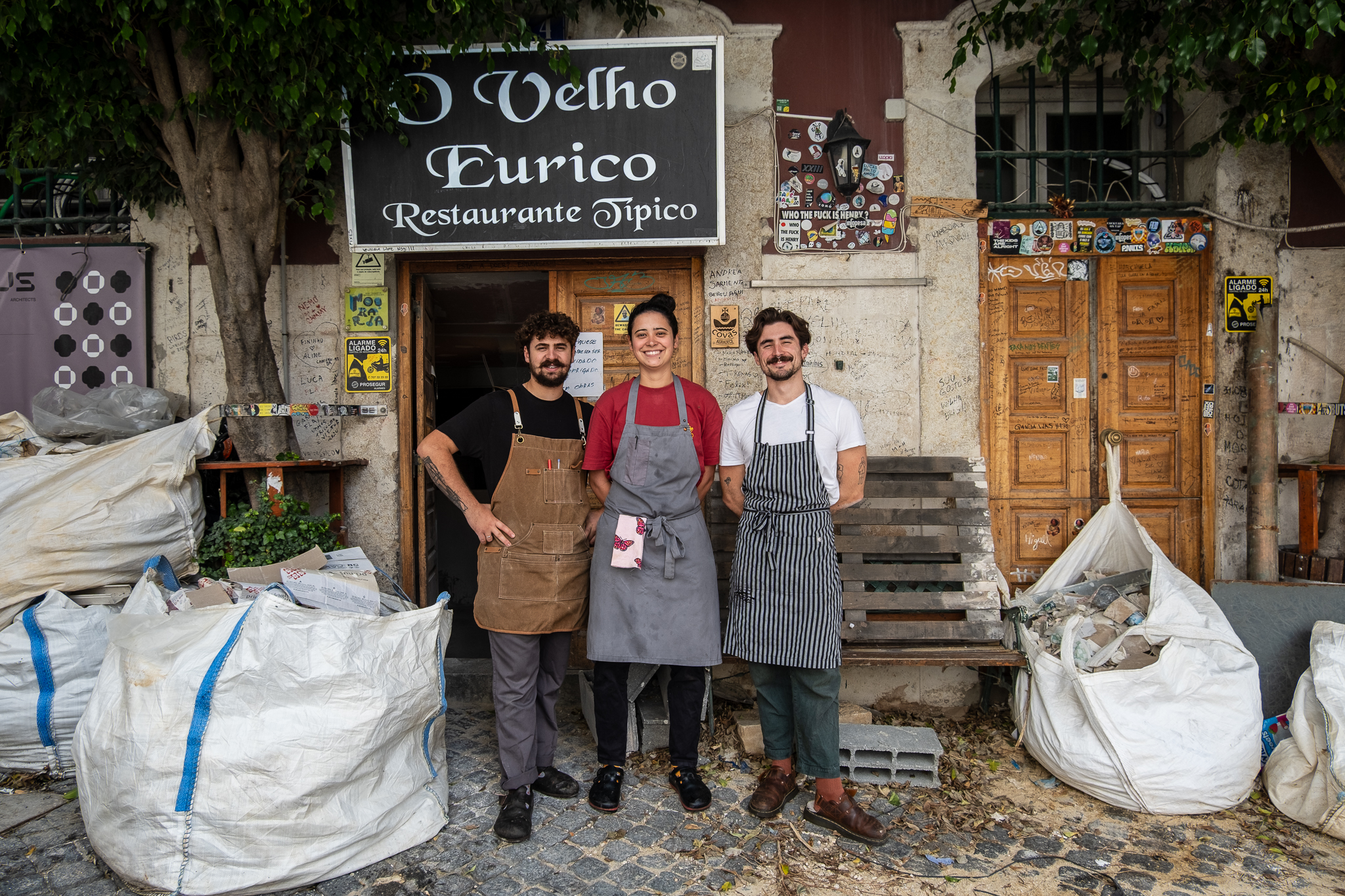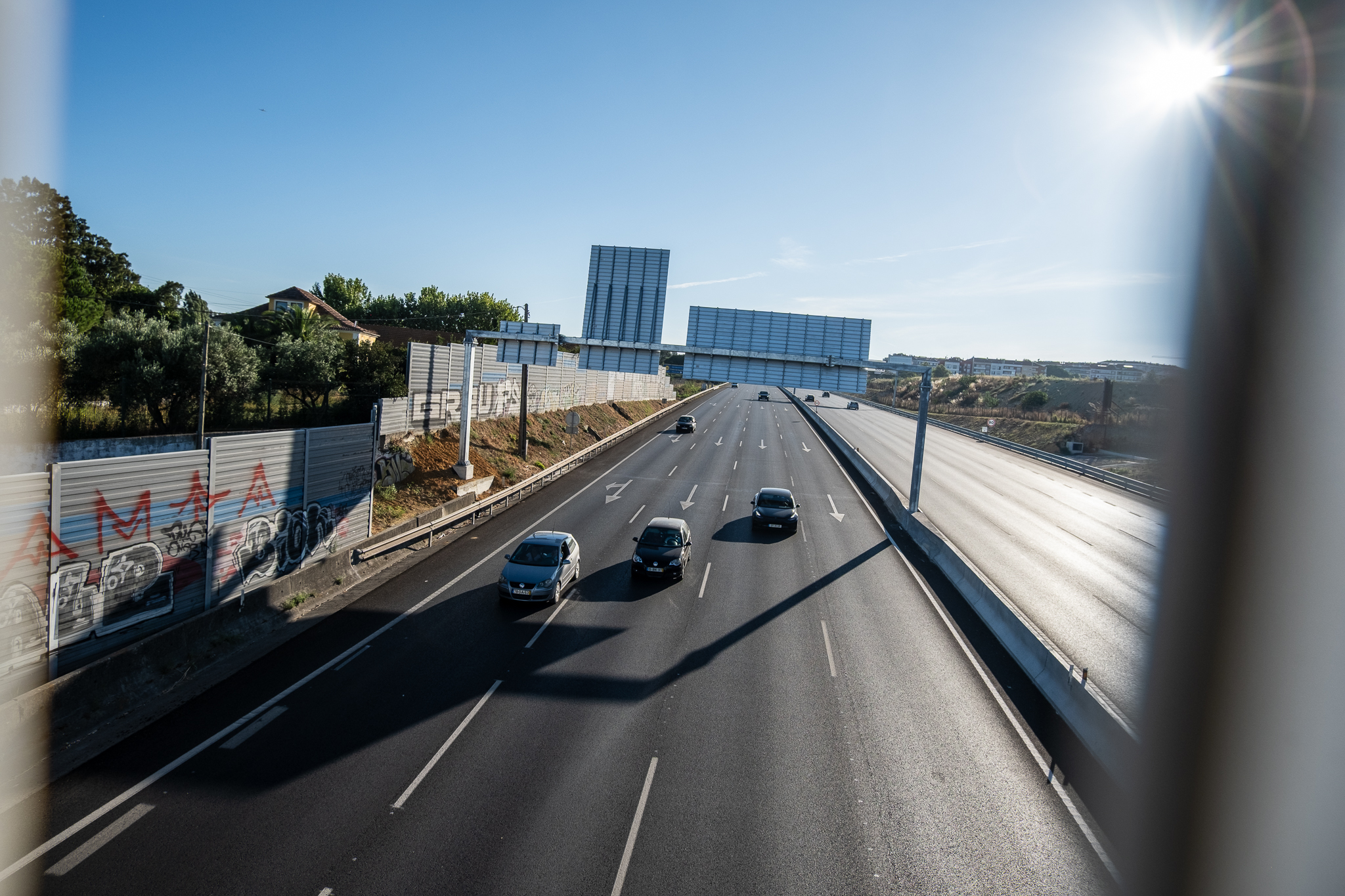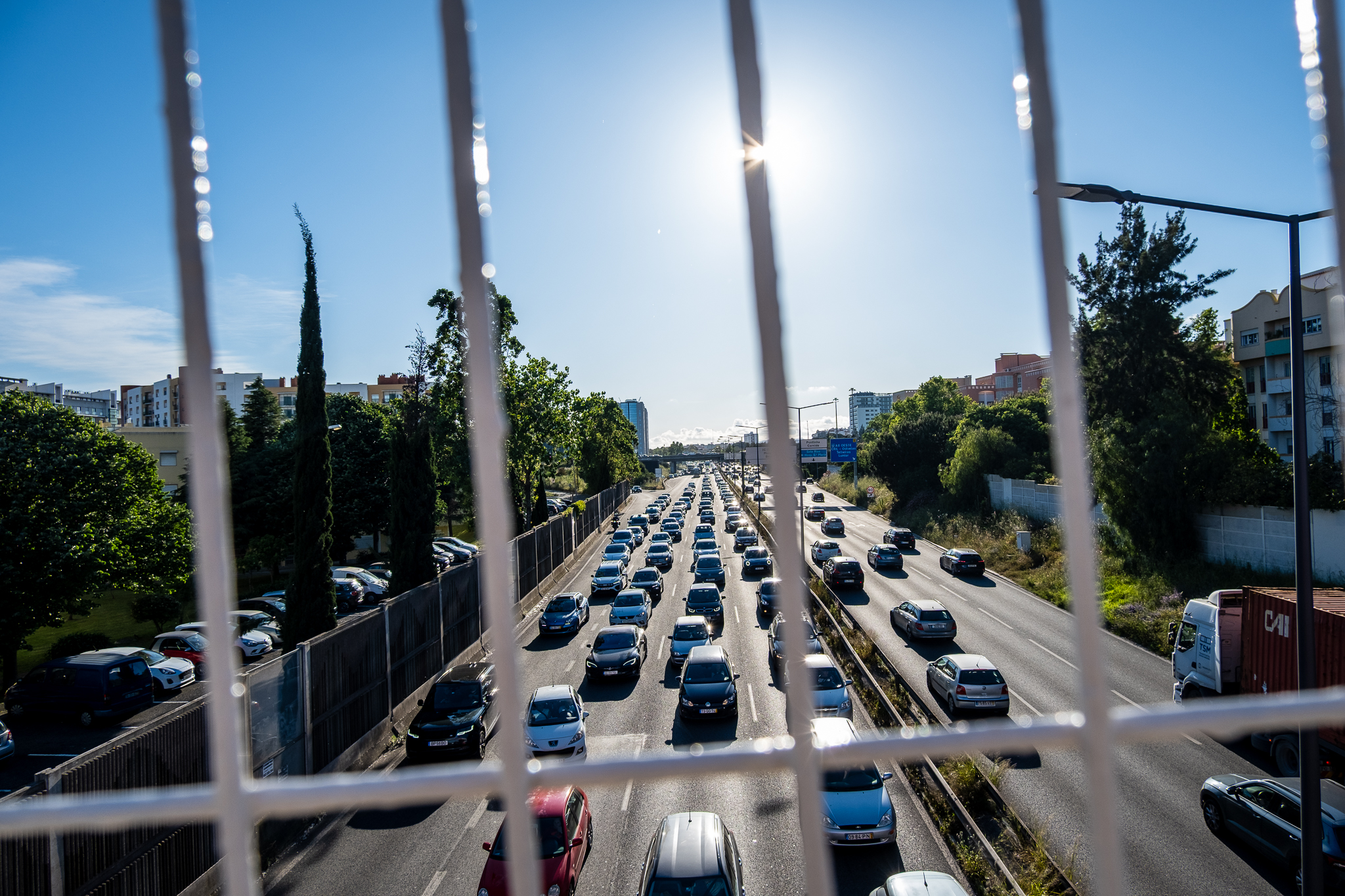Two parking spaces in the parish of Alcântara were transformed for a day into a small urban park with a conversation table, a community library and a special program throughout the day.

In 2005, two people decided to convert a paid parking space in San Francisco, USA, into a small temporary urban park. John and Blaine had realized, on the one hand, that 70-80% of the public space on San Francisco's streets was dedicated to the circulation and parking of vehicles and, on the other, that parking was cheaper than housing in the city. At the same time, they found a loophole in San Francisco's parking regulations: it wasn't illegal to occupy spaces on the street with anything other than a car. And that's exactly what they did.
So, over the course of one day, on November 16, 2005, they created the first Park(in) - an urban park with artificial grass, trees and a bench. The initiative was documented and published on the internetand attracted the attention of more people. The following year, it was transformed into an annual event - Park(in) Day - for people to reclaim urban space from cars, one parking space at a time; the project spread around the world and to various cities. This year, arrived in Lisbon for the first time.
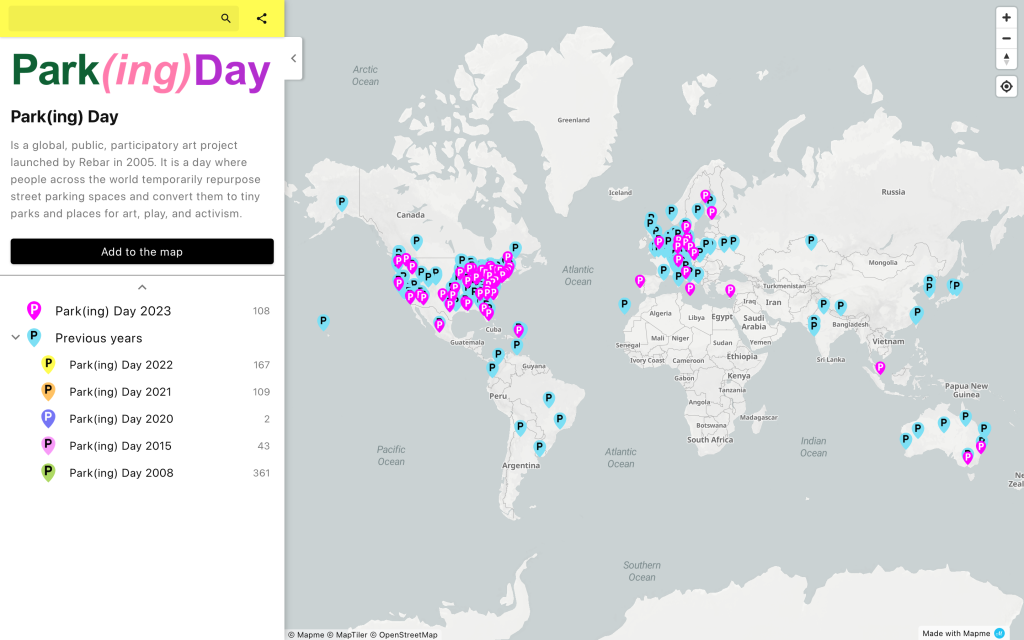
The Portuguese capital celebrated its first Park(in) Day in Alcântara last Friday, September 15thon the eve of the European Mobility Week. Early in the morning, a green carpet of artificial grass was laid out in two parking spaces next to 82 Rua Luís Vaz de Camões; a table and some chairs were added, as well as a bookshelf of books that different people had brought. Throughout the day, there was special programming, such as a workshop for children to make a book, a conversation between neighbors and friends about the future of cities, and a community cycle workshop.
The initiative was promoted by EIT Urban Mobility, an initiative of the European Institute of Innovation and Technology (EIT), which in Portugal is run by BGI. "EIT Urban Mobility challenged us to hold a Park(in) Day in Lisbon for the first time. And we accepted the challenge"explains Filipa Fernandes, from BGI. The first idea was to transform one parking space in each of the 24 parishes of the city of Lisbon, but, faced with the logistical difficulties that this would represent, Filipa quickly reduced the ambition to two contiguous spaces in the parish of Alcântara. And why Alcântara? "I lived and studied here, I spent most of my childhood and adolescence here. Having lived abroad, in Denmark, I realized that Alcântara was a complicated case in terms of parking, public space and pedestrians"he says.
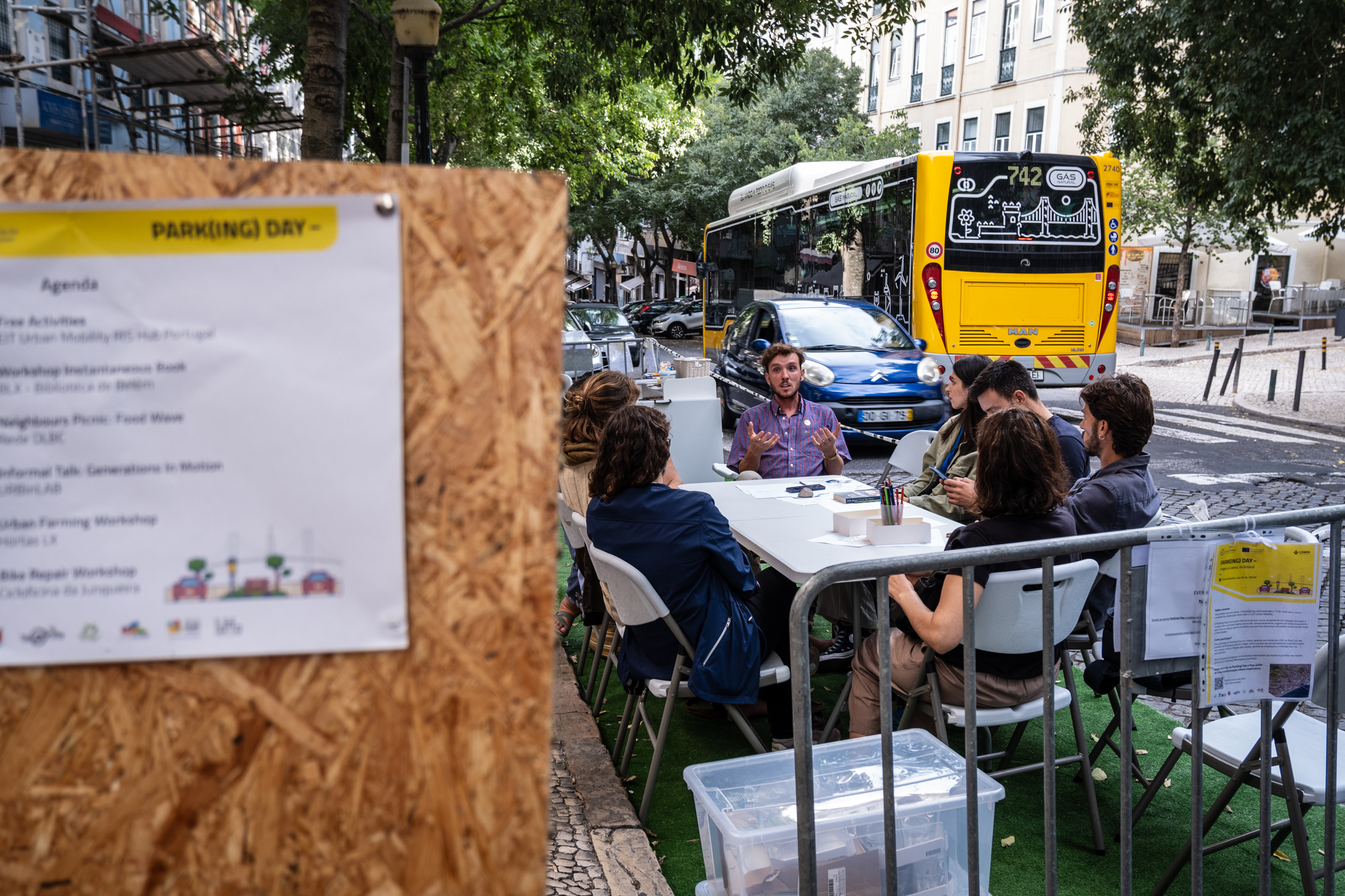
Filipa knew some local associations in Alcântara and started sending emails to build a program for Park(ing) Day. "We brought together local associations, other organizations and some friends. And so it went, conversation after conversation." A Belém Municipal LibraryIn addition to loaning out some material, he organized a workshop for the youngest around books. "We had 16 children between the ages of seven and eight create their own book. They had a book with several incomplete drawings that they had to finish. It was a very funny moment because suddenly we had children on the street, which is something we're not used to seeing very often. Everyone passing by in a car or even on foot was curious"he says. Around 12 noon, the DLBC Network - Local Community-Based Development promoted a community lunch with local and sustainable food, without waste. "We also talked about the carbon footprint of our favorite foods, such as coffee, chocolate and cheese. It was very interesting learning and exchanging experiences."
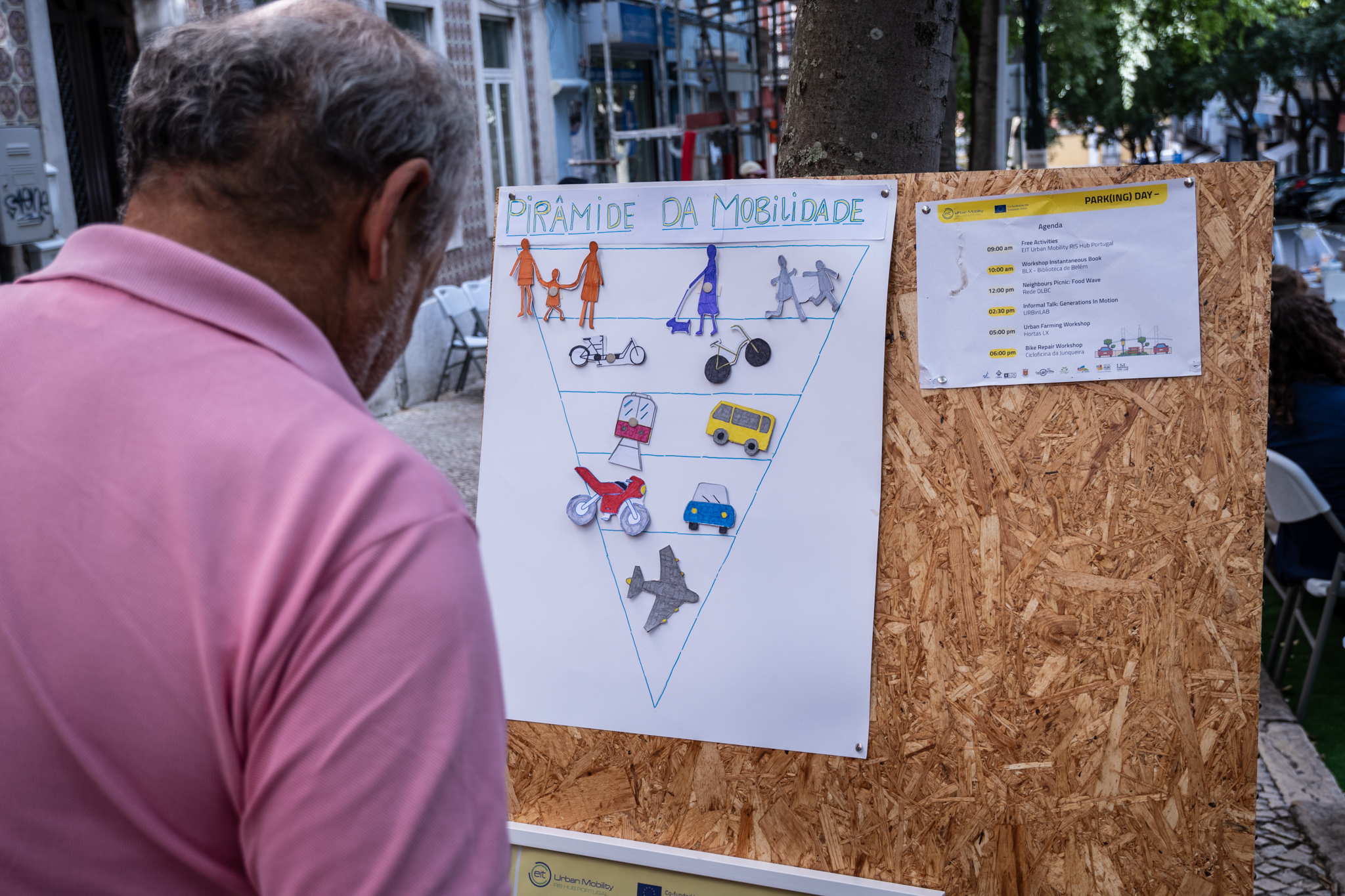
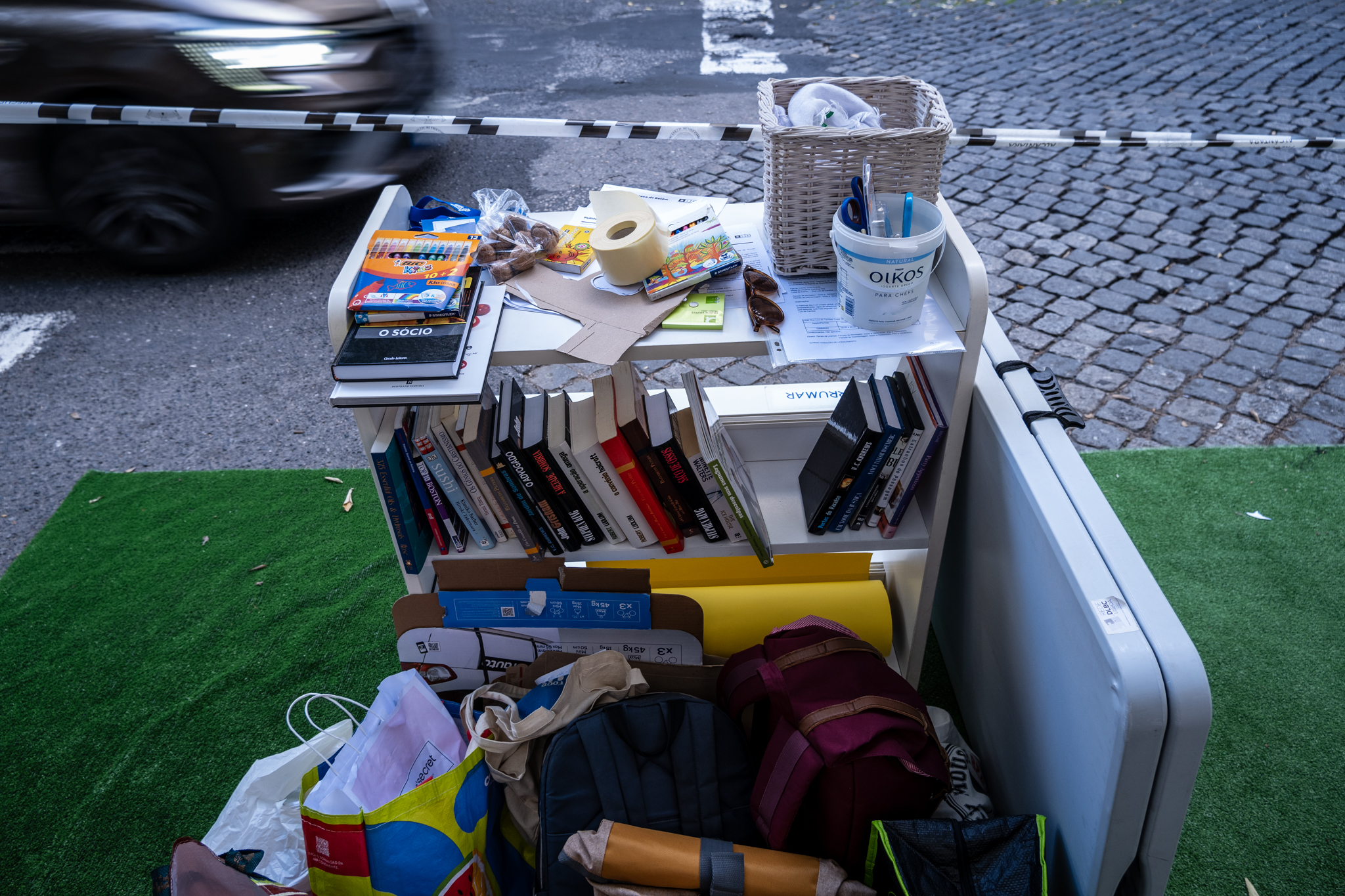

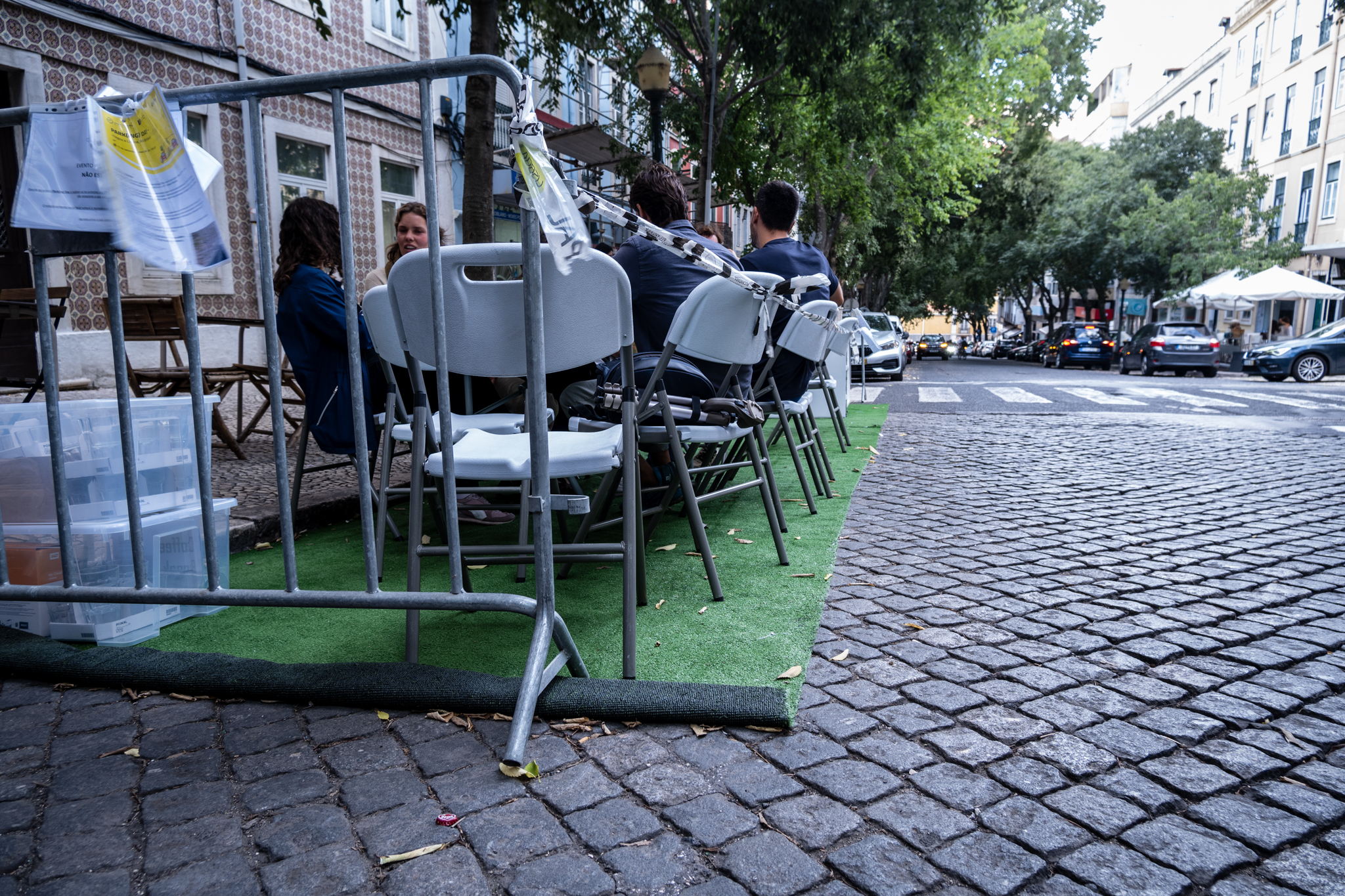
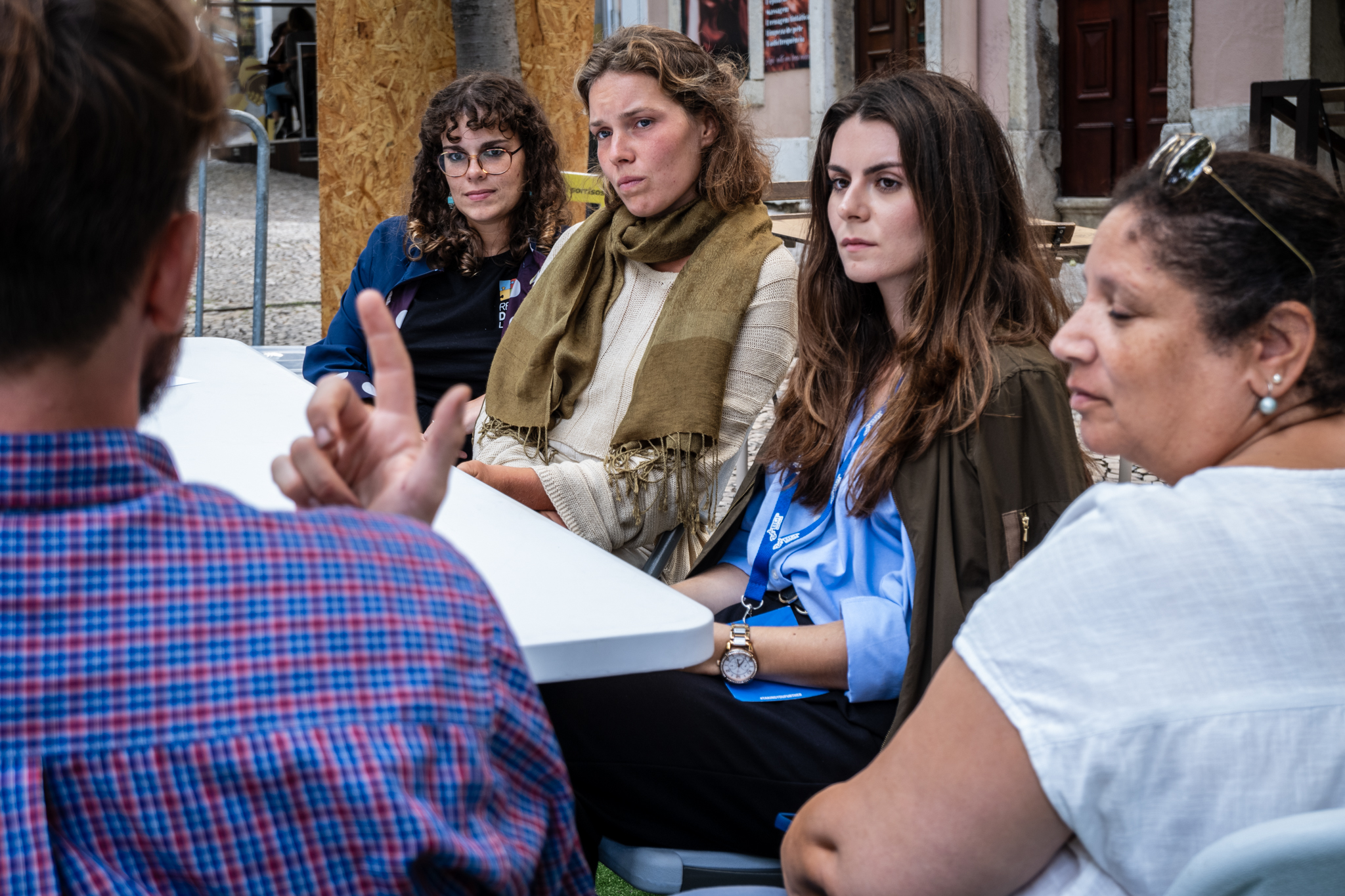
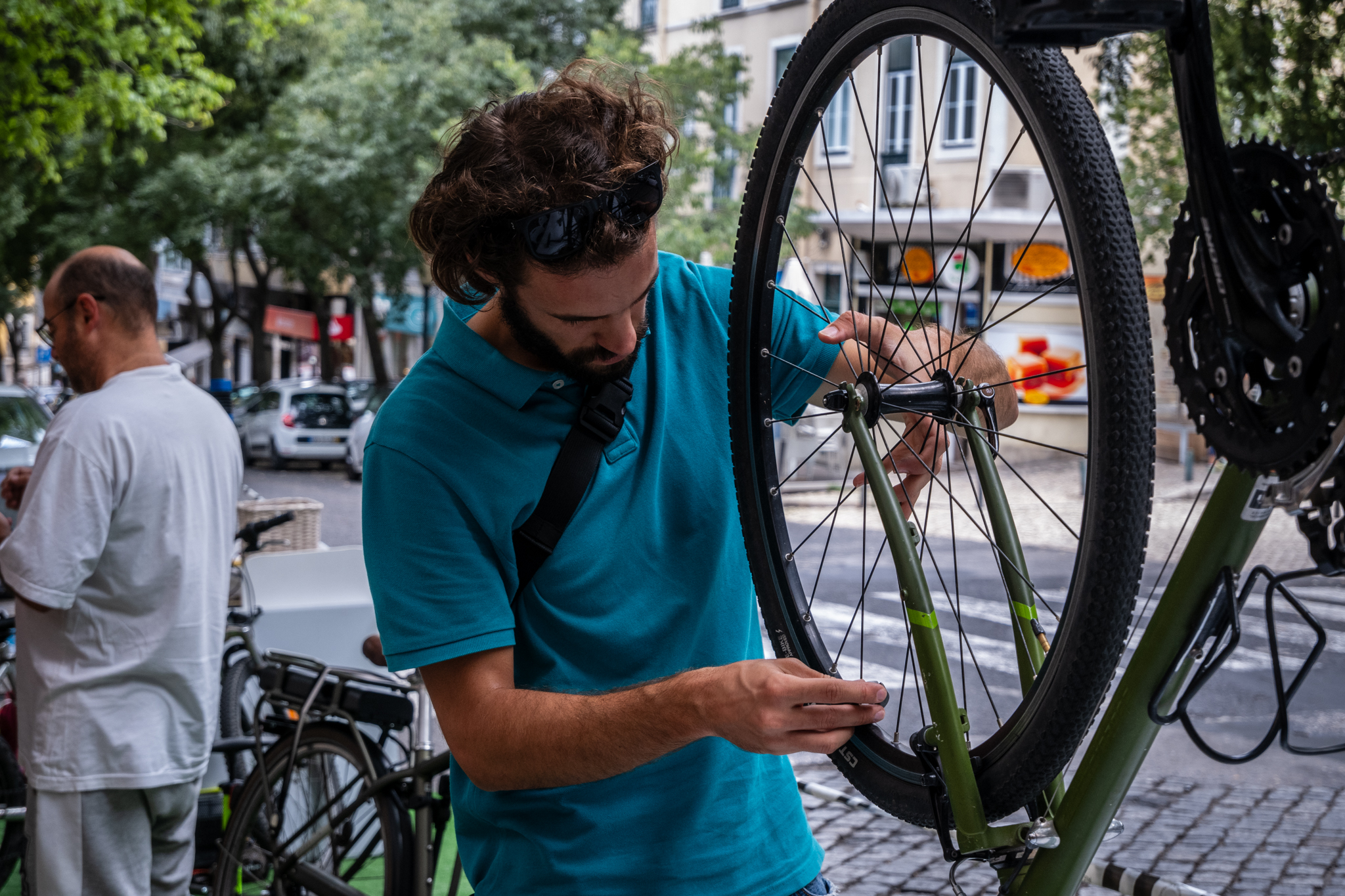
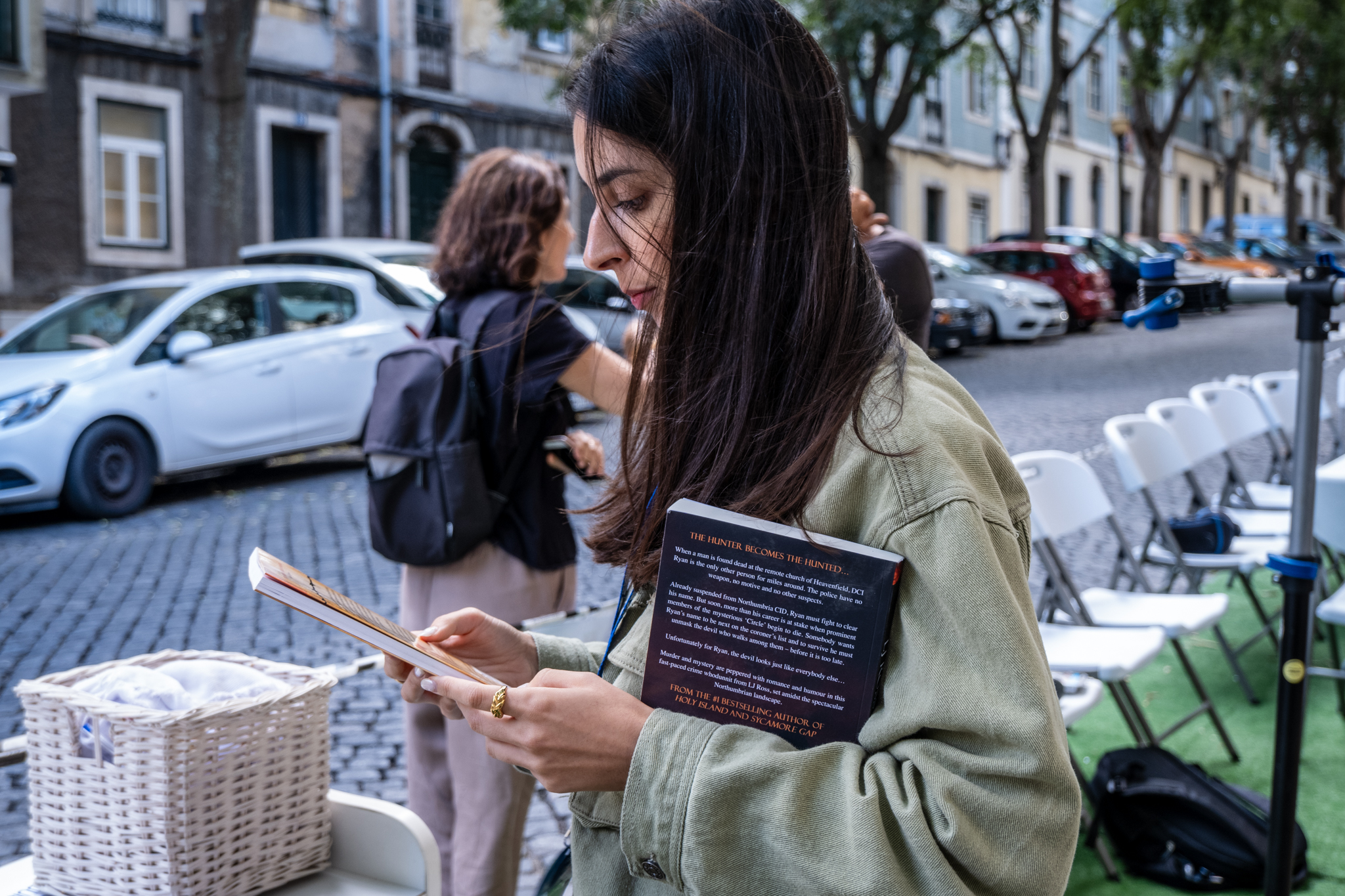
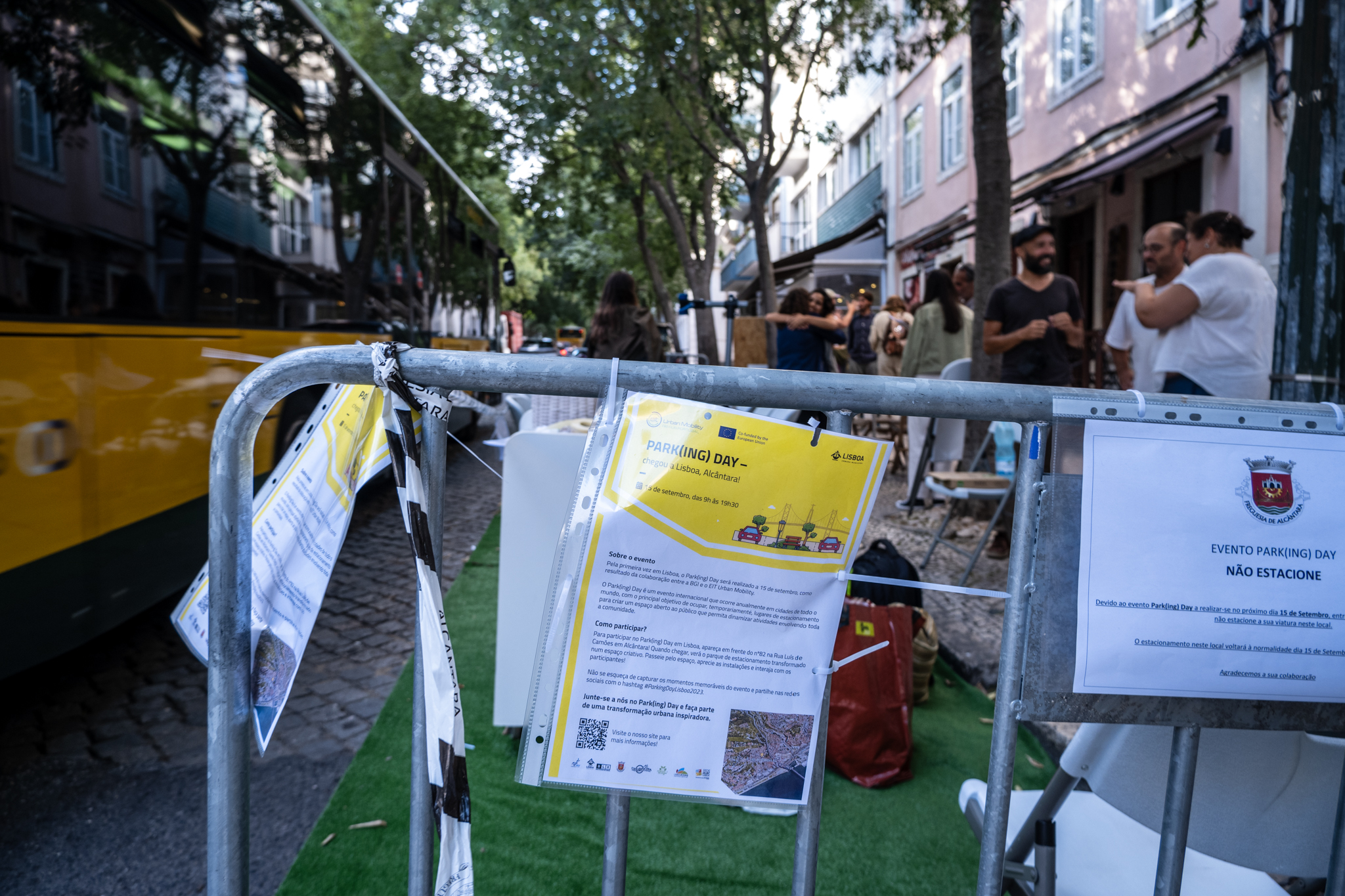
In the afternoon URBinLAB, a research group linked to public space issues and which belongs to the Faculty of Architecture of Lisbon, opened a conversation for all those interested in the future of the streets. "Each of us imagined how our streets could be without parking or filled in a way that would be more pleasant for the inhabitants of the neighborhoods." The meeting resulted in some drawings but above all a discussion of ideas. "We drew pictures, we talked, we commented on each other's drawings. We were able to learn what the most worrying issues are, such as the lack of shade, water features and green spaces." The day ended with a talk on urban agriculture by André Maciel, farmer and author of the project LX GardensThere was also a community bicycle workshop where anyone could bring their own bike and, with the help of others, inflate tires, tune brakes or learn how to do another small repair.
More than the whole program of activities, Park(ing) Day brought people together in one space. It was a meeting point for those who already knew each other, those who only knew each other through digital media and had been putting off a physical meeting, and those who happened to be passing by on the street with no idea about the event and joined in and made new contacts. Filipa says that not all the reactions were positive. "We had people who were just passing by and who stayed with us for the rest of the afternoon. But there were also people who didn't understand the event or who said a few words, but everything was relatively quiet. We didn't fuel many of these provocations either"reports Filipa. "For example, in the early hours of the morning, when we were setting up the space, there were some indignant neighbors because we were basically taking away two parking spaces that many people consider to be a right. We didn't always get people to understand what we were doing there, why we were taking away those parking spaces."
Filipa hopes to repeat Park(ing) Day in Lisbon next year, in Alcântara, in another parish or even in all 24. "Maybe next year we'll be able to fulfill that dream. We believe that this micro-event can be important in expanding these issues of occupying public space and space for people to ordinary citizens."







